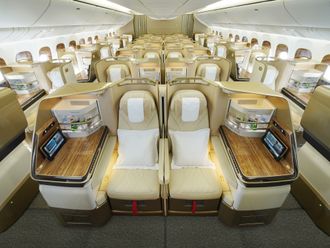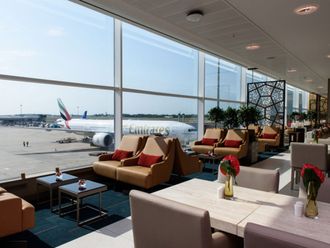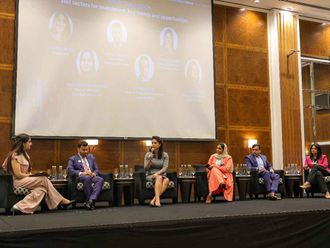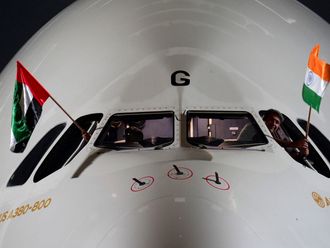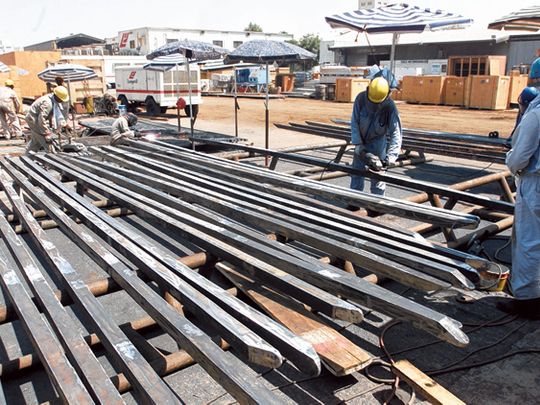
Sharjah: Strong competition from Chinese products and a lack of investment are reducing manufacturing exports in the emirate by up to 25 per cent, local manufacturers say.
Hotpack Packing Industries is a Sharjah manufacturer of tissue, napkins, aluminium foil and kitchen rolls. They export to the GCC, Egypt, Jordan, Iran and Kenya.
This year exports dropped 20 to 25 per cent compared to 2009, according to sales manager Hamssa Mohammad Haji.
"The effect of the crisis is still felt in the market. Profits are dropping and competition is high," he said.
Local manufacturers must strike a balance between cheap Chinese products flooding the market and European ones that are trusted brands, manufacturers say.
"Chinese products are affecting our business," said Amin Hassan Hassan, owner of a kitchenware factory in Industrial Area 1. "They look good, but they're bad quality. They're cheap and that's what people are looking for. But how long will they last?"
A quarter of Hassan's sales are from exports to Africa and the GCC, but he is unable to compete with international brands due to a lack of funding, he said.
"The capabilities abroad are greater in terms of machinery and finances," said Hassan.
He needs about five spec-ialised engraving machines, each costing Dh500,000, but lacks the funding to make that kind of investment and compete with international brands, he said.
"If we had those machines, we'd make spectacular work. But about 70 per cent of it is manual."
The exception to falling exports seems to be in the foodstuffs sector, manufacturers say.
Exports of frozen foods to the GCC fared better than domestic sales, said Ajit Pillai, General Manager of Cascade Marine Foods, a subsidiary of Al Kabeer Group.
The population growth in Saudi Arabia and the return of Arab expats from the UAE to their home countries explains this trend, he said.
"Food is generally considered the sunshine industry. Rain or shine people have to eat," Pillai said.
Infrastructure
If Sharjah is to get ahead as a manufacturing hub in the UAE it must upgrade its infrastructure and logistics, manufacturers say.
"Sharjah can build a name for itself as a food processor. But it needs more support in terms of infrastructure," said Pillai.
He agreed that power cuts in summer and flooded roads in winter do not aid production.
"There is a huge problem with logistics," he pointed out. "There is a huge time-lag between the delivery of frozen foods in Dubai and their shipment to Sharjah or Khor Fakkan."
It takes about a week to transport goods from Jebel Ali to Sharjah, which increases inventory costs for the company, he added. "Many times we were frustrated with shipments landing in Dubai but we've got nothing to produce."
"If they really want Sharjah to grow, then the ports need to arrange for goods to move quickly," Pillai said.
Another obstacle is that Sharjah has only recently focused on quality standards, according to Suresh Kumar, CEO of Al Maa Steel, which manufactures hospital furniture.
So why should importers opt for Sharjah products rather than international brands?
"There's no genuine reason, but they're promoting the ‘Made in Sharjah' label," he said, referring to the manufacturing exhibition that ended Thursday.






